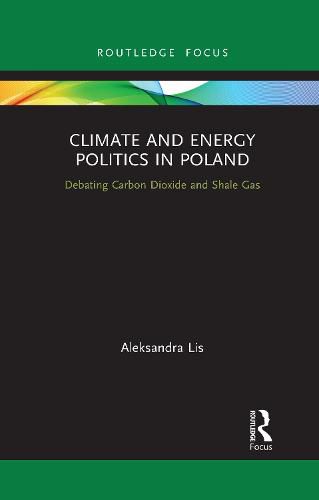Readings Newsletter
Become a Readings Member to make your shopping experience even easier.
Sign in or sign up for free!
You’re not far away from qualifying for FREE standard shipping within Australia
You’ve qualified for FREE standard shipping within Australia
The cart is loading…






Climate and Energy Politics in Poland: Debating Carbon Dioxide and Shale Gas presents a new, object-oriented perspective on the challenge faced by Poland, the largest post-socialist EU member state from Central and Eastern Europe (CEE), to produce knowledge about its energy system in the context of climate change.
Drawing on data from five different research projects and two hundred interviews, Lis reflects on how EU accession forced Poland to mobilize their resources and produce expertise on carbon dioxide and shale gas, in order to actively participate in the debates around EU climate change ambitions and goals. A significant lack of capacity and expert institutions made it difficult for Poland to quickly assess the impacts of EU legislation or to propose new solutions for itself, and it is precisely this struggle for knowledge production that will be examined during the course of the book.
This book will be of great interest to students and scholars of energy and resource politics, climate change, EU environmental policy and CEE studies more broadly.
$9.00 standard shipping within Australia
FREE standard shipping within Australia for orders over $100.00
Express & International shipping calculated at checkout
Climate and Energy Politics in Poland: Debating Carbon Dioxide and Shale Gas presents a new, object-oriented perspective on the challenge faced by Poland, the largest post-socialist EU member state from Central and Eastern Europe (CEE), to produce knowledge about its energy system in the context of climate change.
Drawing on data from five different research projects and two hundred interviews, Lis reflects on how EU accession forced Poland to mobilize their resources and produce expertise on carbon dioxide and shale gas, in order to actively participate in the debates around EU climate change ambitions and goals. A significant lack of capacity and expert institutions made it difficult for Poland to quickly assess the impacts of EU legislation or to propose new solutions for itself, and it is precisely this struggle for knowledge production that will be examined during the course of the book.
This book will be of great interest to students and scholars of energy and resource politics, climate change, EU environmental policy and CEE studies more broadly.